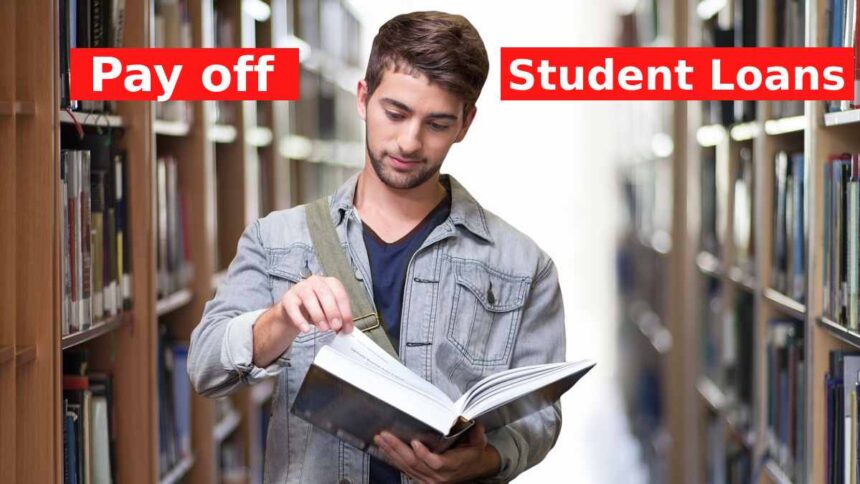In today’s world, student loans have become a significant financial burden for many. With the cost of education soaring, graduates often find themselves facing years of repayment. However, there are effective strategies to manage and pay off student loans faster. Here, we will explore 10 ways to pay off student loans that can help you achieve financial freedom sooner than you think.
What is a Student Loan?
A student loan is a type of loan designed to help students pay for post-secondary education and associated fees, such as tuition, books, supplies, and living expenses. It differs from other types of loans in that the interest rate may be substantially lower, and the repayment schedule may be deferred while the student is still in education.
Who Can Get a Student Loan?
Student loans are available to undergraduate and graduate students attending accredited colleges or universities. Eligibility for federal student loans is determined by completing the Free Application for Federal Student Aid (FAFSA). Most U.S. citizens or eligible non-citizens with a valid Social Security number who are enrolled at least half-time in a degree or certificate program are eligible. Private student loans are also available and can be an option for those who may not qualify for federal loans or need additional funding.
How to Get a Student Loan?
To get a federal student loan, follow these steps:
- Complete the FAFSA: This form collects your financial information to determine your eligibility for federal aid.
- Review Your Financial Aid Package: After submitting the FAFSA, you will receive a financial aid award letter from your school outlining the loans, grants, and scholarships for which you qualify.
- Accept the Loan: Decide which loans you want to accept. Be sure to borrow only what you need.
- Complete Entrance Counseling: First-time borrowers must complete entrance counseling to understand their responsibilities and obligations.
- Sign the Master Promissory Note (MPN): This is a legal document in which you promise to repay your loan(s) and any accrued interest and fees.
For private student loans, you will need to:
- Research Lenders: Compare interest rates, terms, and borrower benefits.
- Apply Online: Submit an application directly to the lender.
- Provide Documentation: You may need to provide proof of income, credit history, and enrollment.
- Sign the Loan Agreement: Once approved, you will need to sign a promissory note.

The Good and Bad of Student Loans
The Good
- Access to Education: Student loans make higher education accessible to more people, enabling them to pursue degrees that can lead to better job opportunities and higher salaries.
- Flexible Repayment Options: Federal student loans offer various repayment plans, including income-driven repayment, which can adjust your monthly payments based on your income.
- Loan Forgiveness Programs: Certain careers in public service or education can qualify for loan forgiveness programs, reducing the amount you need to repay.
The Bad
- Debt Burden: Accumulating a large amount of student debt can be overwhelming and may take years to pay off, affecting your financial health and life decisions.
- Interest Accumulation: Interest on student loans can accumulate quickly, especially if payments are deferred or if the borrower enters forbearance.
- Credit Impact: Failure to repay student loans can negatively impact your credit score, making it difficult to obtain other forms of credit in the future.
1. Create a Detailed Repayment Plan
The first step in paying off student loans is to create a detailed repayment plan. This involves understanding your loan terms, interest rates, and monthly payments. By organizing your finances and setting clear goals, you can develop a realistic timeline for repayment. Use tools like loan calculators to estimate how long it will take to pay off your debt and consider making bi-weekly payments to reduce interest over time.
2. Consider Refinancing Your Loans
Refinancing your student loans can significantly lower your interest rates, thus reducing the total amount you owe. Many private lenders offer competitive rates and flexible terms. Before refinancing, compare offers from multiple lenders to find the best deal. Keep in mind that refinancing federal loans into private loans will result in the loss of federal protections and benefits.
3. Take Advantage of Loan Forgiveness Programs
If you work in certain public service sectors, you may be eligible for loan forgiveness programs. Programs like Public Service Loan Forgiveness (PSLF) and Teacher Loan Forgiveness can discharge a portion or all of your federal student loans after meeting specific requirements. Research the eligibility criteria and ensure you follow the necessary steps to qualify for these programs.
4. Make Extra Payments When Possible
One of the simplest ways to pay off student loans faster is to make extra payments whenever possible. Any additional amount you can put towards your principal will reduce the overall interest you pay. Consider using bonuses, tax refunds, or any extra income to make these additional payments. Just make sure to inform your loan servicer that the extra payments should be applied to your principal balance.
5. Explore Income-Driven Repayment Plans
Federal student loans offer income-driven repayment plans that can make your monthly payments more manageable. These plans base your payments on your income and family size, potentially lowering your monthly obligation. While this can extend the repayment period, it can also provide immediate financial relief and prevent default.

6. Cut Unnecessary Expenses
Cutting unnecessary expenses in your budget can free up more money to put towards your student loans. Evaluate your spending habits and identify areas where you can reduce costs. Simple changes like cooking at home, canceling unused subscriptions, and shopping for deals can make a big difference over time.
7. Increase Your Income
Finding ways to increase your income can accelerate your loan repayment. Consider taking on a part-time job, freelancing, or pursuing a side hustle that aligns with your skills and interests. The extra money you earn can be directed entirely towards paying off your student loans.
8. Utilize Employer Repayment Assistance Programs
Some employers offer student loan repayment assistance as part of their benefits package. This perk can provide significant help in reducing your debt. Check with your employer to see if they offer this benefit and what the requirements are to take advantage of it.
9. Seek Financial Counseling
If you’re struggling with managing your student loans, seeking financial counseling can provide valuable guidance. Financial counselors can help you develop a personalized repayment strategy, navigate loan forgiveness options, and offer tips on budgeting and saving. Many non-profit organizations offer free or low-cost counseling services.
10. Stay Informed and Proactive
Lastly, staying informed about your loans and being proactive in managing them is crucial. Regularly review your loan statements, keep track of your payments, and stay updated on any changes to loan terms or federal policies. Being proactive will help you avoid missed payments and capitalize on opportunities to save money.
Conclusion
Paying off student loans may seem daunting, but with a strategic approach and determination, it is entirely achievable. By creating a repayment plan, exploring refinancing options, taking advantage of loan forgiveness programs, and making extra payments, you can significantly reduce your debt. Additionally, cutting unnecessary expenses, increasing your income, and seeking financial counseling can provide further support on your journey to financial freedom. Stay informed, stay proactive, and remember that every little bit helps in achieving your goal of being student debt-free.
Related: Investing in Yourself: 20 Ways to Build Wealth
Most Searched QNAs
1. What is the best way to pay off student loans quickly?
The best way to pay off student loans quickly is to make extra payments whenever possible. Any additional money you can put towards your loan principal will reduce the overall interest you pay and shorten the repayment period. Consider using bonuses, tax refunds, or any extra income to make these additional payments. Additionally, creating a detailed repayment plan and cutting unnecessary expenses can help you allocate more funds towards your loans.
2. Can student loans be forgiven?
Yes, student loans can be forgiven under certain conditions. Programs like Public Service Loan Forgiveness (PSLF) and Teacher Loan Forgiveness offer federal student loan forgiveness for individuals who work in specific public service jobs or as teachers in low-income schools. Eligibility requirements must be met, such as making a certain number of qualifying payments while working in an eligible job. It is important to research and understand the criteria for these programs to take advantage of them.
3. What happens if you can’t pay your student loans?
If you can’t pay your student loans, you may have several options to avoid default. Federal student loans offer income-driven repayment plans that can lower your monthly payments based on your income. Forbearance or deferment may also be available, temporarily pausing your payments. However, interest may continue to accrue during this period. It is crucial to contact your loan servicer to discuss your options and avoid default, which can negatively impact your credit score and financial future.
4. Is it better to refinance student loans?
Refinancing student loans can be beneficial if you can secure a lower interest rate, reducing the total amount you owe. It can also simplify repayment by consolidating multiple loans into one. However, refinancing federal loans into private loans means losing federal protections and benefits, such as income-driven repayment plans and loan forgiveness programs. It is important to compare offers from multiple lenders and weigh the pros and cons before deciding to refinance.
5. How do student loans affect credit score?
Student loans can impact your credit score in several ways. Making on-time payments can help build a positive credit history, improving your credit score. Conversely, missed or late payments can negatively affect your score. The amount of debt you owe and the length of your credit history also play a role in your credit score. Managing your student loans responsibly by making timely payments and avoiding default is crucial for maintaining a good credit score.
Related: 10 Financial Planning for Business Owners




